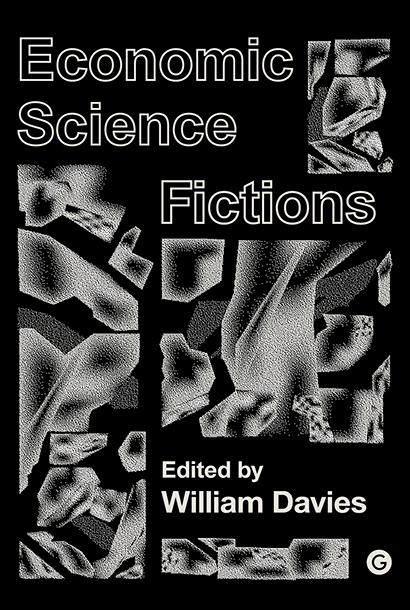Elvia Wilk: Oval (2019)
Filed under fiction | Tags: · dystopia, science fiction

“In the near future, Berlin’s real estate is being flipped in the name of “sustainability,” only to make the city even more unaffordable; artists are employed by corporations as consultants, and the weather is acting strange. When Anja and Louis are offered a rent-free home on an artificial mountain–yet another eco-friendly initiative run by a corporation–they seize the opportunity, but it isn’t long before the experimental house begins malfunctioning.
After Louis’s mother dies, Anja is convinced he has changed. At work, Louis has become obsessed with a secret project: a pill called Oval that temporarily rewires the user’s brain to be more generous. While Anja is horrified, Louis believes he has found the solution to Berlin’s income inequality. Oval is a fascinating portrait of the unbalanced relationships that shape our world, as well as a prescient warning of what the future may hold.”
Publisher Soft Skull, New York, 2019
ISBN 9781593764050, 1593764057
pages
Reviews: Katy Waldman (New Yorker, 2019), Angelica Frey (Hyperallergic, 2019), Michael Friedrich (LA Review of Books, 2019), Jason Sheehan (NPR, 2019), Yvonne C. Garrett (Brooklyn Rail, 2019), Will Preston (Full Stop, 2019), Alex Ronan (Nation, 2019), Stan Portus (C Magazine, 2020).
Comment (0)William Davies (ed.) Economic Science Fictions (2018)
Filed under book | Tags: · automation, capitalism, dystopia, economics, economy, luddism, money, neoliberalism, science fiction, utopia

“From the libertarian economics of Ayn Rand to Aldous Huxley’s consumerist dystopias, economics and science fiction have often orbited each other. In Economic Science Fictions, editor William Davies has deliberately merged the two worlds, asking how we might harness the power of the utopian imagination to revitalise economic thinking.
Rooted in the sense that our current economic reality is no longer credible or viable, this collection treats our economy as a series of fictions and science fiction as a means of anticipating different economic futures. It asks how science fiction can motivate new approaches to economics and provides surprising new syntheses, merging social science with fiction, design with politics, scholarship with experimental forms.
With an opening chapter from Ha-Joon Chang as well as theory, short stories, and reflections on design, this book challenges and changes the notion that economics and science fiction are worlds apart. The result is a wealth of fresh and unusual perspectives for anyone who believes the economy is too important to be left solely to economists.”
Contributors: AUDINT, Khairani Barokka, Carina Brand, Ha-Joon Chang, Miriam A. Cherry, William Davies, Mark Fisher, Dan Gavshon Brady, Owen Hatherley, Laura Horn, Tim Jackson, Mark R. Johnson, Bastien Kerspern, Nora O Murchú, Justin Pickard, James Pockson, Tobias Revell, Judy Thorne, Sherryl Vint, Georgina Voss, Jo Lindsay Walton, Brian Willems.
Publisher Goldsmiths Press, London, 2018
ISBN 9781906897680, 1906897689
xiv+383 pages
Reviews: Anna Nguyen (LSE Review of Books, 2018), Justin Reynolds (New Socialist, 2018).
PDF (15 MB)
Comment (0)Andrew Feenberg: Between Reason and Experience: Essays in Technology and Modernity (2010)
Filed under book | Tags: · critical theory, critique of technology, dystopia, environment, history of technology, internet, modernity, philosophy of technology, technology

“The technologies, markets, and administrations of today’s knowledge society are in crisis. We face recurring disasters in every domain: climate change, energy shortages, economic meltdown. The system is broken, despite everything the technocrats claim to know about science, technology, and economics. These problems are exacerbated by the fact that today powerful technologies have unforeseen effects that disrupt everyday life; the new masters of technology are not restrained by the lessons of experience, and accelerate change to the point where society is in constant turmoil. In Between Reason and Experience, leading philosopher of technology Andrew Feenberg makes a case for the interdependence of reason—scientific knowledge, technical rationality—and experience.
Feenberg examines different aspects of the tangled relationship between technology and society from the perspective of critical theory of technology, an approach he has pioneered over the past twenty years. Feenberg points to two examples of democratic interventions into technology: the Internet (in which user initiative has influenced design) and the environmental movement (in which science coordinates with protest and policy). He examines methodological applications of critical theory of technology to the case of the French Minitel computing network and to the relationship between national culture and technology in Japan. Finally, Feenberg considers the philosophies of technology of Heidegger, Habermas, Latour, and Marcuse. The gradual extension of democracy into the technical sphere, Feenberg argues, is one of the great political transformations of our time.”
Foreword by Brian Wynne
Afterword by Michel Callon
Publisher MIT Press, 2010
Inside Technology series
ISBN 0262514257, 9780262514255
248 pages
PDF, PDF (updated on 2015-12-22)
Comments (2)
